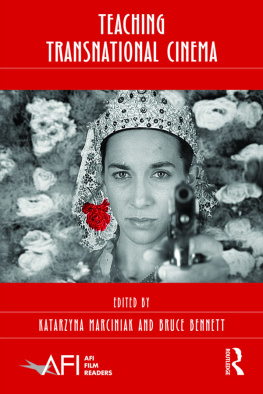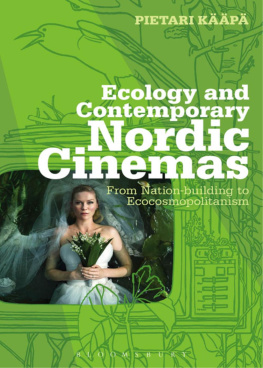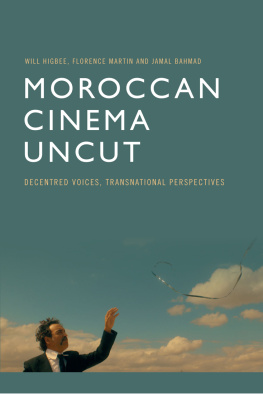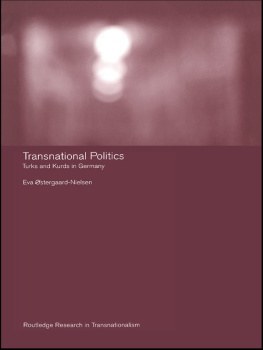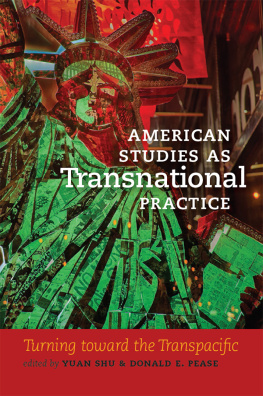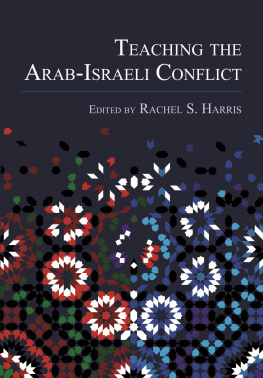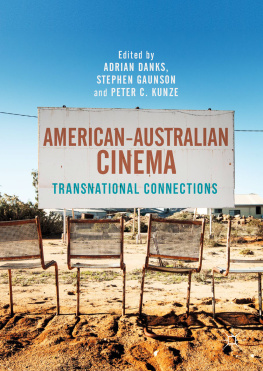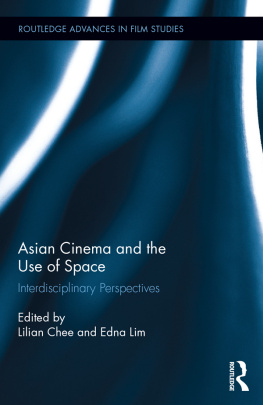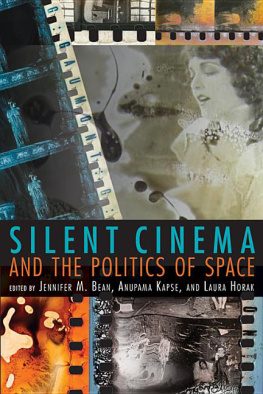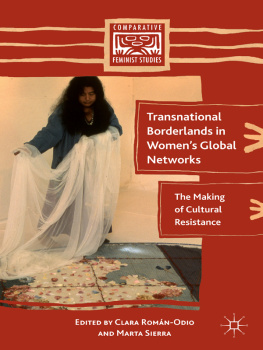Teaching Transnational Cinema
This collection of essays offers a pioneering analysis of the political and conceptual complexities of teaching transnational cinema in university classrooms around the world. In their exploration of a wide range of films from different national and regional contexts, contributors reflect on the practical and pedagogical challenges of teaching about immigrant identities, transnational encounters, foreignness, cosmopolitanism and citizenship, terrorism, border politics, legality and race. Probing the value of cinema in interdisciplinary academic study and the changing strategies and philosophies of teaching in the university, this volume positions itself at the cutting edge of transnational film studies.
Katarzyna Marciniak is Professor of Transnational Studies in the English Department at Ohio University, USA. She is the author of Alienhood: Citizenship, Exile, and the Logic of Difference, Streets of Crocodiles: Photography, Media, and Postsocialist Landscapes in Poland, co-editor of Transnational Feminism in Film and Media and, with Imogen Tyler, Immigrant Protest: Politics, Aesthetics, and Everyday Dissent.
Bruce Bennett is Senior Lecturer in Film Studies at the Lancaster Institute for the Contemporary Arts at Lancaster University, UK. He is the author of The Cinema of Michael Winterbottom: Borders, Intimacy, Terror, and co-editor of Cinema and Technology: Cultures, Theories, Practices.
Previously published in the AFI Film Readers series
Edited by Edward Branigan and Charles Wolfe
Psychoanalysis and Cinema
E. Ann Kaplan
Fabrications: Costume and the Female Body
Jane Gaines and Charlotte Herzog
Sound Theory/ Sound Practice
Rick Altman
Film Theory Goes to the Movies
Jim Collins, Ava Preacher Collins, and Hilary Radner
Theorizing Documentary
Michael Renov
Black American Cinema
Manthia Diawara
Disney Discourse
Eric Smoodin
Classical Hollywood Comedy
Henry Jenkins and Kristine Brunovska Karnick
The Persistence of History
Vivian Sobchack
The Revolution Wasnt Televised
Lynn Spigel and Michael Curtin
Black Women Film and Video Artists
Jacqueline Bobo
Home, Exile, Homeland
Hamid Naficy
Violence and American Cinema
J. David Slocum
Masculinity
Peter Lehman
Westerns
Janet Walker
Authorship and Film
David A. Gerstner and Janet Staiger
New Media
Anna Everett and John T. Caldwell
East European Cinemas
Anik Imre
Landscape and Film
Martin Lefebvre
European Film Theory
Trifonova Temenuga
Film Theory and Contemporary Hollywood Movies
Warren Buckland
World Cinemas, Transnational Perspectives
Nataa uroviov and Kathleen Newman
Documentary Testimonies
Bhaskar Sarkar and Janet Walker
Slapstick Comedy
Rob King and Tom Paulus
The Epic Film in World Culture
Robert Burgoyne
Arnheim for Film and Media Studies
Scott Higgins
Color and the Moving Image
Simon Brown, Sarah Street, and Liz Watkins
Ecocinema Theory and Practice
Stephen Rust, Salma Monani, and Sean Cubitt
Media Authorship
Cynthia Chris and David A. Gerstner
Pervasive Animation
Suzanne Buchan
The Biopic in Contemporary Film Culture
Tom Brown and Beln Vidal
Cognitive Media Theory
Ted Nannicelli and Paul Taberham
Hollywood Puzzle Films
Warren Buckland
Endangering Science Fiction Film
Sean Redmond and Leon Marvell
New Silent Cinema
Paul Flaig and Katherine Groo
Teaching Transnational Cinema
Politics and Pedagogy
Edited By
Katarzyna Marciniak and Bruce Bennett

First published 2016
by Routledge
711 Third Avenue, New York, NY 10017
and by Routledge
2 Park Square, Milton Park, Abingdon, Oxon OX14 4RN
Routledge is an imprint of the Taylor & Francis Group, an informa business
2016 Taylor & Francis
The right of Katarzyna Marciniak and Bruce Bennett to be identified as authors of this work has been asserted by them in accordance with sections 77 and 78 of the Copyright, Designs and Patents Act 1988.
All rights reserved. No part of this book may be reprinted or reproduced or utilised in any form or by any electronic, mechanical, or other means, now known or hereafter invented, including photocopying and recording, or in any information storage or retrieval system, without permission in writing from the publishers.
Trademark notice: Product or corporate names may be trademarks or registered trademarks, and are used only for identification and explanation without intent to infringe.
Library of Congress Cataloging-in-Publication Data
Names: Marciniak, Katarzyna, 1963 editor. | Bennett, Bruce,
1970 editor.
Title: Teaching transnational cinema : politics and
pedagogy / [edited] by Katarzyna Marciniak and Bruce Bennett.
Description: New York : Routledge, 2016. | Includes index.
Identifiers: LCCN 2015037394 | ISBN 9781138928435 (hardback) |
ISBN 9781315681733 (e-book)
Subjects: LCSH: Motion picturesSocial aspects. | Motion pictures
Political aspects. | Motion pictures in education.
Classification: LCC PN1995.9.S6 T395 2016 | DDC 302.23/43dc23
LC record available at http://lccn.loc.gov/2015037394
ISBN: 978-1-138-92843-5 (hbk)
ISBN: 978-1-315-68173-3 (ebk)
Typeset in Spectrum
by Apex CoVantage, LLC
contents
katarzyna marciniak and bruce bennett
part one
seeing the world through film
bruce bennett
alex lykidis
matthew holtmeier and chelsea wessels
ruth doughty and deborah shaw
david martin-jones
part two
transnational encounters
rachel lewis
anita wen-shin chang
mette hjort
laurence raw
bhaskar sarkar
ine ohealy
part three
transnational aporias
neda atanasoski
aga skrodzka
terri ginsberg and tania kamal-eldin
katarzyna marciniak
bruce bennett and katarzyna marciniak
Our foremost gratitude goes to Edward Branigan and Chuck Wolfe, the Editors of the AFI Film Readers Series, who strongly supported this project from its inception. Their faith in the importance of a book of this kind guided our efforts throughout the many stages of preparing the manuscript. Our editor at Routledge, Simon Jacobs, has offered a patient and professionally sound guidance and we are grateful for his assistance.
Our contributors have been incredible collaborators; we thank them for their willingness to share with us their ideas and various areas of expertise all the while focusing on the values of pedagogical commitments, innovations, and contingencies we variously experience as teachers of transnational cinemas. It has been an exciting opportunity for us to work with scholars positioned in various parts of the world and representing many cultures, languages, and contexts. Ours has been a cross-cultural collaboration and the diversity of our contributors distinct voices greatly enhances the value of a book whose goal is to consider linkages between cinematic texts and our pedagogical practices.

